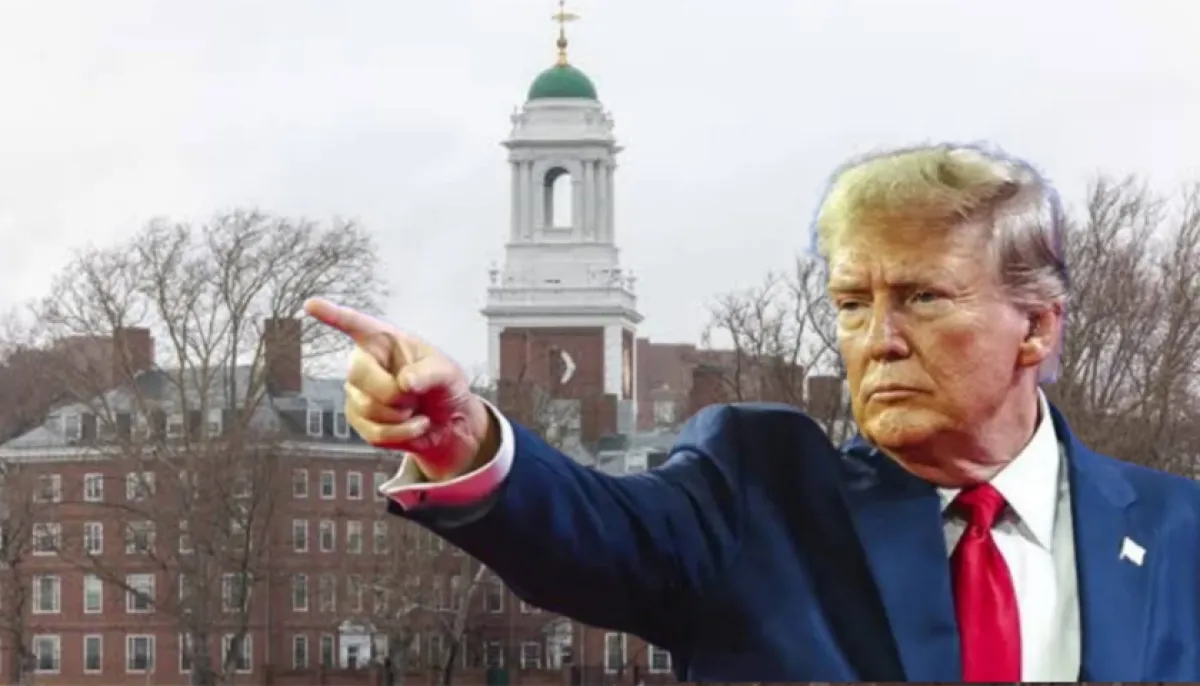 ছবি : সংগৃহীত
ছবি : সংগৃহীত
A federal judge on Friday temporarily blocked the Trump administration’s move to prevent Harvard University from enrolling international students—a measure Harvard condemned as unconstitutional retaliation for resisting the White House’s political pressure.
Harvard filed a lawsuit earlier the same day in Boston federal court, arguing that the government's action violates the First Amendment and would cause immediate and severe harm to the university and its over 7,000 international students.
“The government is trying to erase a quarter of our student body with a single decision,” the university stated in its complaint, emphasizing that Harvard’s identity and mission are closely tied to its global student body.
U.S. District Judge Allison Burroughs issued an order pausing the government’s action while the legal process continues.
Harvard said the administration’s decision had created chaos just days before graduation. The affected students include those managing research labs, teaching, supporting faculty, and taking part in athletics. They now face the choice of transferring to other institutions or risking their legal status in the U.S.
The move would be especially damaging to graduate programs such as the Harvard Kennedy School, where about half the students are from abroad, and Harvard Business School, where international students make up a third of the enrollment. It would also prevent thousands of new students from joining summer and fall programs.
Harvard warned the policy could deter top international talent in the future, with applicants possibly avoiding the university out of fear of future government retaliation. If the policy were enforced, Harvard said it wouldn’t be able to admit new international students for at least two academic years, as schools whose certification is revoked must wait a year before reapplying.
The university currently hosts about 6,800 foreign students, mostly in graduate programs, from over 100 countries.
The Department of Homeland Security (DHS) justified its action by claiming Harvard fostered an unsafe campus environment, citing incidents involving “anti-American, pro-terrorist agitators” targeting Jewish students. DHS also accused Harvard of collaborating with the Chinese Communist Party and training Chinese paramilitary members as recently as 2024.
Harvard President Alan Garber responded earlier this month, saying the school had implemented governance reforms and was actively addressing antisemitism. However, he reaffirmed Harvard’s commitment to its “core, legally-protected principles,” regardless of political pressure. The university has pledged to respond separately to allegations raised by House Republicans concerning ties with the Chinese government.
Former Harvard president and ex-U.S. Treasury Secretary Lawrence Summers criticized the administration’s move on social media, warning that it could alienate future global leaders and calling the policy “madness.”
The enrollment threat stems from an April 16 request by Homeland Security Secretary Kristi Noem, who demanded data on foreign students potentially involved in protests or violence. Harvard said it submitted thousands of data points in response, but DHS claimed the university did not comply—without offering specifics.
Harvard’s lawsuit alleges the administration failed to follow its own rules for revoking a school’s certification under the Student Exchange and Visitor Program, which typically occurs for administrative failures like loss of accreditation or inadequate facilities—not for political reasons.
Noem has said Harvard could regain its certification if it submits extensive records within 72 hours, including audio or video of international students involved in protests or hazardous behavior.
This lawsuit is separate from another legal battle in which Harvard is challenging more than $2 billion in federal funding cuts imposed by the Trump administration.
